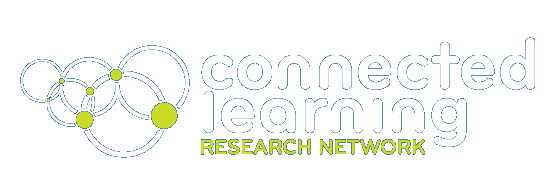The Case for European Level Action on Child Safety Online
July 15, 2013
PROJECTS: The Class
TAGS:
In advance of publication this week of a major new EU-Funded Research Report on EU Kids Online, Project Director Professor Sonia Livingstone reviews the case for EU action.
In the UK there has been considerable activity to promote child safety and empowerment online, with key achievements coordinated by the UK Council of Child Internet Safety, informed by its Evidence Group. These achievements include the pioneering work of the Internet Watch Foundation, the Child Exploitation and Online Protection Centre in dealing with offenders, and the UK Safer Internet Centre in promoting advice and resources to parents, children and teachers. Also crucial has been the effort – recently successful – to include e-safety in the revised school curriculum from KS1-KS4, as audited by Ofsted.
But many challenges remain, including the roll out of parental controls to the nation this autumn, meeting the needs of vulnerable children online, clarifying where parents can get good advice (is it ParentPort?), keeping up with the latest technology (from internet-enabled TV to public wi-fi to peer-to-peer sharing of violent or upsetting videos to new risks associated with apps and geolocation).
In this context, it was disturbing to learn that the UK Council for Child Internet Safety is losing its dedicated and expert civil servant secretariat in July 2013. Whether present and future challenges can be effectively met seems highly uncertain. At the same time, the UK is trumpeted as the leader for many European developments: can we maintain this status in the future?
Coincidentally, the European situation looks equally uncertain. The Safer Internet Programme is closing in October 2014, putting the funding for hotlines, helplines, awareness centres and research all in jeopardy. Despite the Commission’s adoption of the Communication on a European Strategy for a Better Internet for Children (2/5/2012) which asserts vital priorities for child online safety and empowerment, funding decisions are being made now and it’s possible this line of work won’t be supported.
Similarly, Neelie Kroes’ CEO Coalition is unclear – thus far it has put in a lot of work to share best practice, but whether practice is now improved has not yet been demonstrated – EU Kids Online research has charted the evidence for insufficient provision hitherto. The confusingly parallel ICT Coalition is still hard at work, and has just appointed Dr Brian O’Neill, a member of EU Kids Online, to make an independent assessment of the outcomes in terms of empowering kids to use the internet safely. We look forward to his findings in the spring.
Given this unpredictable and worrying policy landscape, it is worth reviewing why European action is greatly needed. This is usefully led by innovative developments in some countries, for sure, but for many countries, it is action at the European level that has led the way, ensuring at least some degree of internet safety provision in each member state. And since countries are precisely connected by the internet, problems experienced by children in one country can easily have consequences for children in another, including in the UK. I suggest, further, that:
- Since the internet-related industries are transnational, it is generally ineffective to try and deal with them nationally (how many national negotiations can Facebook undertake?), especially if these conversations point in different directions.
- Since, too, there is a flow in internet diffusion and adoption from wealthier to less wealthy countries, it is obviously hugely beneficial to share best practice from the earlier to the later adopters – indeed, could even be called harmful to children not to share lessons learned from earlier to later adopter countries.
- Of course, countries differ in many ways, but EU Kids Online evidence suggests that for the most part, the similarities across countries (and differences within countries) are greater than the differences across countries. Yes, GDP matters (as in the previous point), affecting how quickly children gain internet access, and contributing to the digital divide. But there are only modest effects of culture on parenting styles or on educational technology provision by country. Thus it is entirely feasible to develop a pan-European approach to a better internet for kids, and to share best practice across countries.
This European level is needed specifically to address the online environment, despite an increase in blurring between online and offline worlds, because:
- Many organisations concerned with children’s well-being offline simply do not engage with children’s experiences online as yet. This can be argued for professionals who work in schools, social work, health practice and mental health services.
- Ideally, matters of online empowerment and online risk would be thoroughly embedded in all the regular services that work with children. But often such professionals say the internet poses new technical challenges, and a pace of change they simply cannot manage; hence the continued need for policy regarding the online environment.
- Further, the online environment has, in effect, privatised much of children’s lives – where they play, how they talk to their friends, how they research school work, what games they play. All this and more used to be in the public domain, but now takes place on privately owned services where the terms of service, customer care policies, and forms of redress do not always consider the specific needs of children, and to which public bodies have little access or information.
On might argue that European policy on child safety online is not needed because that is the job of parents. Parents can play an important role, but could be encouraged and helped to do more. Here EU Kids Online research shows that:
- For the majority of children, parents are an under-tapped asset. Children would like their parents to engage with their internet use more. The more parents know about the internet the more actively they guide their children. Most children say they do not, in practice, avoid or ignore their parents’ guidance or rules. Hence further parental involvement should be encouraged.
- For a small minority of children, parents pose a risk – both directly (for ‘at risk’ children) and insofar as forms of family deprivation or vulnerability offline tend to increase children’s vulnerability online. For these children, targeted strategies to strengthen protective factors or ameliorate risk factors are needed, and it is a particular problem that children’s services (as noted above) have not yet grasped the way in which the internet may compound risk for these children.
- Over and again, research shows that parents themselves prefer to rely on schools for safety guidance for their children, and it is therefore a challenge that many schools teach little in this area.
Evidence-based decisions and evaluations are important to the process of developing European level policy. A great next step would be if the European Commission could ensure that policies or practices required of industry always include a transparent process of evaluating their impact, including on child users, this would build public trust and confidence in those practices. But at present, it is not clear that we are moving forward at all.
The post gives the views of the author, and does not represent the position of the LSE Media Policy Project blog, nor of the London School of Economics. Original post and PDF format can be found at the LSE Media Policy Project blog.


